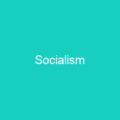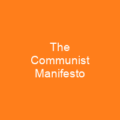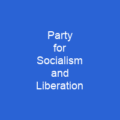Understanding Social Organisms: A Collective Journey
Imagine a bustling city where every individual is like a tiny cog in an enormous machine. Each person interacts, influences, and is influenced by countless others around them. This interconnected web of relationships defines what we call ‘social organisms.’ But have you ever wondered why the term ‘social’ has such deep roots? It all starts with Latin, where socii means ‘allies.’ Allies in this context are not just friends but those who share a common purpose or interest. This idea of cooperation and mutual support forms the backbone of social interactions.
The Philosophical Foundations: Marx and Weber
Is humanity inherently social? Karl Marx, one of history’s most influential thinkers, believed so. He saw society as a complex network where individuals are not just isolated beings but parts of larger structures that shape their lives. For Marx, the collective experience is more important than individual experiences. His theory suggests that our actions and behaviors are deeply intertwined with those around us.
On the other hand, Max Weber approached social interactions from a different angle. He defined human action as ‘social’ when it takes into account others’ behavior. This means that every decision we make is influenced by the people and environment surrounding us. It’s like walking through a dense forest where each step you take is guided not just by your own path but also by the trees, animals, and other travelers around you.
Socialism: A Response to Industrial Capitalism
Now, let’s dive into how social interactions have shaped modern political ideologies. Socialism emerged as a direct response to industrial capitalism. It questioned the idea that human behavior is solely determined by economic factors and instead emphasized the role of society in shaping our actions. The question here is: Can we truly understand human behavior without considering the broader social context?
For socialism, the answer is clear—yes, we can! By focusing on redistributive policies and government resources, socialism aims to create a more equitable society where everyone has access to basic needs and opportunities. This approach contrasts sharply with private spheres that often prioritize individual success over collective well-being.
The Modern Definition of ‘Social’
Today, the term ‘social’ is used in various contexts. It can refer to policies aimed at redistributing wealth or providing public services, contrasting starkly with private spaces and biological determinants. This shift highlights a fundamental change in how we view human behavior and society.
When we talk about social policies, we’re talking about actions that aim to improve the lives of all members of a community. These can range from healthcare systems to education reforms, all designed to ensure that everyone has an equal chance at success. In contrast, private spheres often focus on individual achievements and personal freedoms.
Conclusion: The Power of Social Interactions
In the end, social interactions are not just about how we behave but also about how our actions shape the world around us. Whether it’s through policies that aim to create a more equitable society or simply understanding that every decision we make is influenced by those around us, the power of social interactions cannot be overstated.

You want to know more about Social?
This page is based on the article Social published in Wikipedia (retrieved on February 18, 2025) and was automatically summarized using artificial intelligence.







